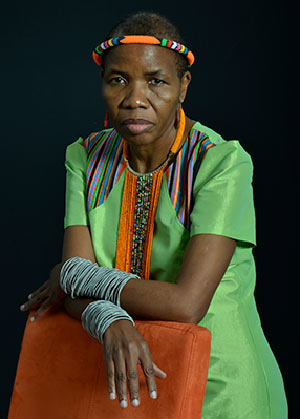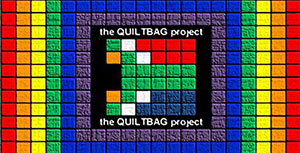College of Human Sciences
LGBTI inclusivity in higher education

Prof Azwihangwisi Mavhandu-Mudzusi (Head: Office of Graduate Studies and Research, CHS)
Great strides have been made towards embracing diversity at institutions of higher learning; often, however, when one thinks of diversity, it is often about cultural differences, ethnicities and race. Lesbian, gay, bisexual, transgender and intersex (LGBTI) diversity and inclusivity is often an afterthought, the last item on the agenda, if at all, and, sometimes, the elephant in the room.
However, while some may not identify as lesbian, gay, bisexual, transgender, queer, asexual or pansexual, chances are, we all know someone who is. The question that follows is, are we creating safe and free spaces in our daily conduct or outputs as far as LGBTI inclusivity is concerned? This question is even more prevalent for us as community members of a higher education institution. As places of learning and knowledge dissemination, universities play a critical role in shaping the society we live in. It is therefore crucial that LGBTI inclusivity is taken seriously in institutions of higher learning. Instead, universities remain difficult spaces for people who are not heterosexual or cisgender.
Prof Azwihangwisi Mavhandu-Mudzusi, Head of the Office of Graduate Studies and Research in the College of Human Sciences (CHS), helps us put into perspective the importance of LGBTI inclusivity in higher education. Mavhandu-Mudzusi has done extensive advocacy work for LGBTI and here she narrates issues and challenges facing the community. First, she notes, "LGBTI individuals experience stigmatisation and discrimination in their everyday lives. These experiences are noted in South Africa, even though its constitution of 1996 is recorded as the first constitution in the world to explicitly provide for non-discrimination against people based on gender and sexual orientation."
Mavhandu-Mudzusi explains that LGBTI individuals are marginalised in almost every space, including institutions of higher education. The marginalisation, she says, "is evident in the language used in policies and other university documents, as well as in infrastructural arrangements, including the toilets and other areas of impact." She further explains that the marginalisation in academic spaces has a negative social and psychological impact. This, in turn, affects the academic performance and excellence of both student and staff.
Mavhandu-Mudzusi speaks from the experience of her advocacy work, which started when she was still in the employ of the University of Venda. Realising the stigma and discrimination towards LGBTI individuals early in her academic career, she was inspired to start a support group for students. "LGBTI individuals were considered as 'matula', meaning bad omen. To others, they were considered 'matudzi', which means taboo. This made most LGBTI students to stay in the 'closet' and suffer in silence," she explains.
As the support group grew, "I realised that students were even experiencing violence in class. Determined to change the stigma, I started to host awareness campaigns, debates and dialogues," she adds. The pinnacle of Mavhandu-Mudzusi’s work was reached when she presented her findings on the experiences of LGBTI individuals during the 2012 National Higher Education South Africa (HESA) conference. Her presentation led HESA to institute a national study on the experiences of LGBTI individuals. Based on the findings, HESA in collaboration with NACOSA ensured that at least 14 universities have a funded LGBTI coordinator for two years to lead programmes of addressing LGBTI stigma and discrimination on campus.
Mavhandu-Mudzusi insists that there’s still a great deal of work that needs to be done to create inclusive spaces within our society. From her advocacy work, she explains that LGBTI people are marginalised in inexcusable ways. "I have seen LGBTI people excluded from participating in sports, getting horrendous labels such as sinners, devils and demon-possessed in spaces which ought to be free for all.” In some cases, she concludes, they are even threatened with rape and death."
LGBTI rights and creating safe spaces
LGBTI people encounter many significant hardships. Access to safe spaces - places where they can feel free to express their sexual orientation, their gender identity and all other dimensions of their being without fear - is critical to ensuring their human rights. However, LGBTI people still face violence, harassment and intimidation for openly seeking their human rights.
While many organisations in South Africa and around the world have emerged to educate communities about injustices against the LGBTI community, there are still reports that they are facing more abusive cases in the community than ever. According to the Love and not Hate Campaign 2015 survey, 14% of Gauteng residents support violence against gay and lesbian people. A recent case that made international news headlines a few months ago is of a lesbian teen murdered after being viciously stabbed 13 times, ironically on Human Rights Day. There has been a surge of similar cases in the country.
This alarming rate of discrimination and violence against the LGBTI community goes to show that a buy-in from multiple sectors is needed to address this battle. Safe spaces are more than just designated areas where people feel physically safe. Instead, they are spaces where the LGBTI community will not experience discrimination and exclusion. These include, for example, everyday things that heterosexual people enjoy, like self-expression without prejudice. LGBTI people - like all people - should have the freedom to enjoy their human rights and fundamental freedoms such as the right to dignity, liberty and equality.
There’s still much work that needs to be done to address LGBTI rights and inclusivity, and institutions of higher learning as sources and platforms of knowledge transfer have a bigger responsibility to advocate and shape knowledge and behaviour in society.
The Quiltbag project at Unisa

The project seeks to make people (both members and non-members of the wider queer community) aware of the many different gender and sexual minorities and of their challenges and achievements. It aims to advocate for the human rights of the Quiltbag community, bust myths and stereotypes, fight ignorance and create a sound platform for debate, conversation and reconciliation.
The project has over the years also challenged the representation of Quiltbags in film (and other media texts) and educated about issues concerning the Quiltbag community especially within the cinematic scape. This has been achieved through organising academic seminar series that address a specific theme topical in the Quiltbag community. The project has been greatly supported by prominent people, including Justice Fayeeza Kathree-Setiloane, a judge at the Gauteng Division of the High Court, and Justice Edwin Cameron who is renowned for his work as a human rights lawyer during apartheid as well as his advocacy for gay and lesbian equality.
Through this project, Unisa is intentional about embracing diversity and providing a safe space for the LGBTI community.
* By Tshimangadzo Mphaphuli, Senior Journalist, Department of Institutional Advancement
Publish date: 2020/08/24

 Unisa co-hosts G20 community outreach in the Eastern Cape
Unisa co-hosts G20 community outreach in the Eastern Cape
 Unisans gain membership of prestigious science academies
Unisans gain membership of prestigious science academies
 Advocating for disability transformation through servant leadership
Advocating for disability transformation through servant leadership
 Unisa Press continues to illuminate the publishing space
Unisa Press continues to illuminate the publishing space